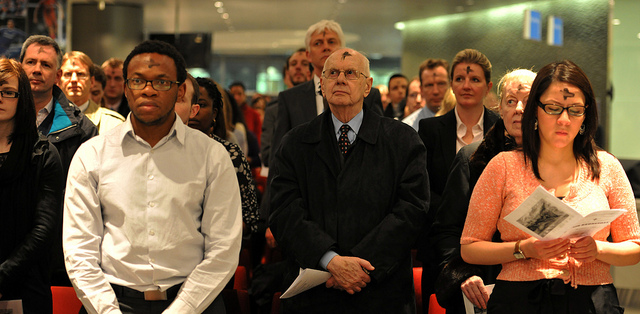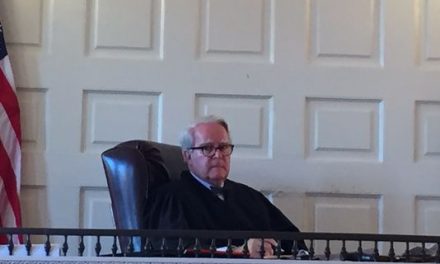“I don’t think I’ll be doing anything for Lent this year,” a close friend of mine says.
I know, all too well, the temptation. I am thinking this too – that I will maybe not do anything this year.
Lent, with its fasts and abstinence, its giving up good things (like chocolate and wine) and taking on more good things to do (like prayer and community service), seems too difficult this year. There are the personal reasons – the long-term illness that a family member has, which already requires a strict diet, the extra tasks that are taken on by being a long-term caregiver, the vegetarian diet my friend is trying (partly as a result of reading Laudato Si’), the extra volunteer work taken on for the parish.
What else can we “give up” that has not already been given up? What else could we take on without feeling like we are breaking – no, shattering – with the weight of what we already have to do?
Then there are the social/cultural reasons. We already feel like we’re wandering in the deserted wasteland of the country’s divided opinions. It’s already been a Lent for the past five weeks, and longer.
A mutual friend of ours routinely experiences nativism – “Go back to where you belong” – that that friend is, in fact, an American citizen of Indian descent. Another friend is advised not to leave the country even to visit a dying father, for fear of not being able to return to home, job, and family.
My friend is more politically “conservative” than I am, in the older sense of the word – appreciates small government in ways I am not convinced about. We share being pro-life, though we differ on how best to advocate for pre-natal people. Yet, she finds that maybe the ACA was helpful – look at those unemployed parishioners who are actually receiving care with an actual doctor, rather than continually going to the ER in the middle of the night like before. These are things about which we have disagreements, but which do not really threaten our friendship – for our friendship is grounded in something other than our political beliefs (thank heaven).
Unfortunately, part of what joins us together these days is that the utter political division of “us” versus “them,” the constant use of the word “lie” and its cognates wears us down. “The media lie.” “The president lies.” “Fake news.” “Believe me.”
Sometimes we throw up our hands in despair, wondering how everyone else can believe the lies that we hear. Then we laugh together – painfully – at ourselves, when we realize that we each think the other of us is listening to the wrong sort of news – “obvious lies”! We can’t both be right, we tell each other.
We sigh, together – maybe a bit like the Spirit’s “sigh too deep for words.” And then, we see what we must do.
“We’ve just got to celebrate Lent this year,” she says to me. I know, I say. We used to be Lenten warriors, the two of us. Some years we’d do Byzantine fasts – giving up meat, fish, dairy, oil. Some years we’d aim to pray the liturgy of the hours as much as possible.
This year, we’ve got to be Lenten warriors of a different sort. This year, what we’re celebrating is Truth – like the truth of the fact that however much of giving up and taking on we think is too much, we still know our Indian friend is hurting and doesn’t get any kind of reprieve. She’s already been broken, many times.
We will speak and practice Truth to and for each other – like this:
And this, about consumerism and waste, which urges us to keep on though we don’t want to do so:
To blame population growth instead of extreme and selective consumerism on the part of some, is one way of refusing to face the issues. It is an attempt to legitimize the present model of distribution, where a minority believes that it has the right to consume in a way which can never be universalized, since the planet could not even contain the waste products of such consumption. Besides, we know that approximately a third of all food produced is discarded, and ‘whenever food is thrown out it is as if it were stolen from the table of the poor.’ (Laudato Si’ 50)
And this, about the daily things we can do:
Saint Therese of Lisieux invites us to practise the little way of love, not to miss out on a kind word, a smile or any small gesture which sows peace and friendship. An integral ecology is also made up of simple daily gestures which break with the logic of violence, exploitation and selfishness. (Laudato Si‘ 230)
But also:
We will be dust for each other – following where Christ has gone, seeking to give light to the Truth of Christ.



